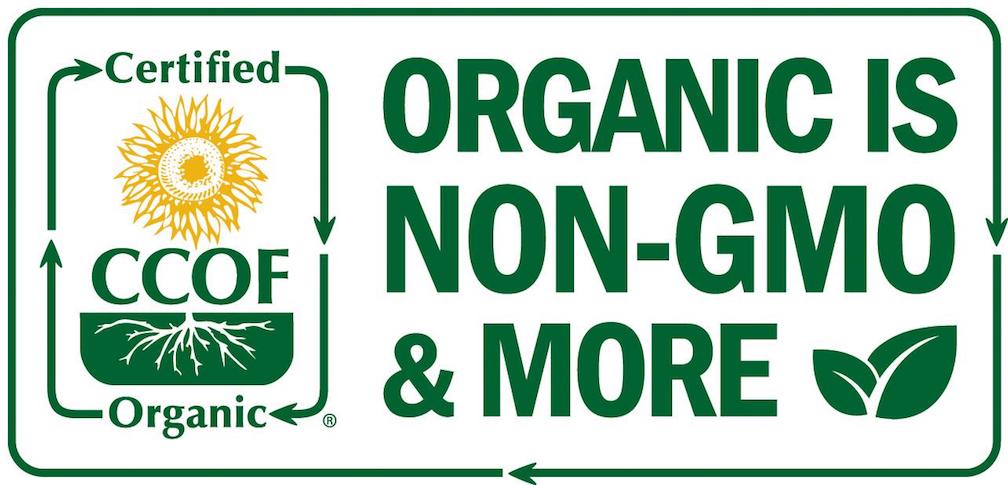We’re official! Officially certified, that is. This week Coastal Roots Farm received our organic certification from CCOF (California Certified Organic Farmers). Though the Farm has used organic practices since the beginning, we’re honored to receive this official stamp of recognition.
What does organic certification mean for the farm?
We’ll use the same organic practices we always have, which means no chemical pesticides, herbicides, or fertilizers. We spray only organic mixtures—like compost tea—and sprays approved by the Organic Materials Review Institute. We add beneficial insects to control pests and produce compost from natural waste like food scraps and plant clippings to add fertility to the soil.
The organic certification sets a quality standard for Coastal Roots Farm and holds us accountable through regular self-audits and inspections. It’s also an important step in building our tracking systems. Being a certified organic farm requires us to monitor all farm inputs and provide regular reports.
Ultimately, organic farming is about building healthy, fertile soil and stewarding the land. It means using biological controls (such as compost tea and beneficial insects) and setting a standard of excellence for our farm practices. Though we’ve always used organic practices, this certification creates accountability and gives our community even more confidence that the food they receive is top quality. “Receiving the organic certification strengthens our commitment to growing organic, sustainable, healthy, clean, food,” says Field Production Coordinator Molly Zimmerman.
Why buy organic?
The short answer is that organic food is better for our bodies and for the environment. The CCOF provides some great resources[1] about the importance of growing, buying, and eating organic produce.
Here are a few reasons to buy organic:
- Protect your body from chemicals. Synthetic pesticides and herbicides have been linked to diseases and health issues including cancer, obesity, and diabetes.
- The organically-farmed soil actually removes carbon from the atmosphere. This means organic farms combat climate change!
- Organic produce is fresher because it lacks preservatives.
- Organic food is GMO-free.
Today there’s widespread awareness of the importance of organic produce. Most people are familiar with the organic label and understand why pesticides can be harmful. Still, a holistic understanding of food justice requires more than buying produce with a certain sticker.
As our Community Farmer Aaron Stewart puts it, “A higher level of eating organic is paying attention to your local farm and farmer, and building a more personal connection to the local environment.”
Organic farming is a way of caring for our land and community. Because of this, we want to encourage our community to become more connected to their food system. A great way to do this is by visiting Coastal Roots, meeting our farmers, and seeing some of our practices in person. “We’re honored to receive the certification, and we also want to promote a more holistic understanding of what it means to grow and eat healthy, organic food,” says Aaron.
Thank you for supporting Coastal Roots Farm’s mission to grow and share healthy food with our community! We’re excited to achieve this certification and commit to using all-organic practices, all the time.
[1] https://www.ccof.org/organic/why-organic
